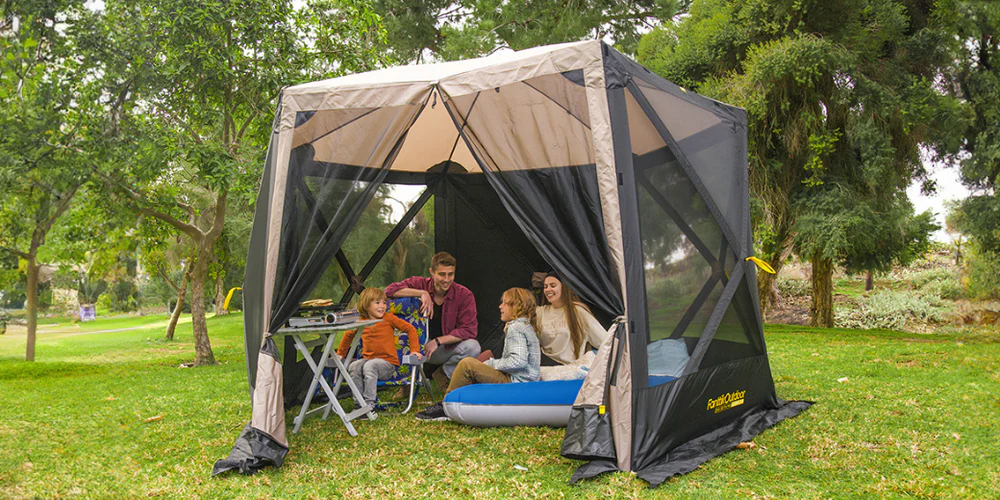Master the Secrets to Keeping Your Car Canopy Steady Against Any Storm!
For those who own a car canopy, the peace of mind it brings can quickly turn to anxiety when storms roll in. A canopy can protect your vehicle from harsh weather elements, but if not anchored securely, it can become a liability. Many car canopy owners face challenges during adverse weather conditions, with high winds capable of dislodging even the sturdiest structures. In this article, we will explore effective anchoring techniques that not only secure your canopy but also ensure it withstands the test of time and nature's fiercest elements.

Understanding the Risks of Unsecured Car Canopies
The consequences of an unsecured car canopy can be severe. Imagine a sudden storm sweeping through your area, with gusts of wind strong enough to lift and toss your canopy across your yard—or worse, into your neighbor’s property. According to meteorological reports, strong winds can reach speeds of over 50 mph, causing significant damage to unsecured structures. A friend of mine once lost a canopy during a storm, resulting in not only damage to her vehicle but also to her neighbor’s fence. This incident serves as a stark reminder that failing to anchor your canopy can lead to costly repairs and even legal disputes. Proper anchoring is not just a precaution; it’s essential for protecting your investment and your surroundings.
Choosing the Right Location for Your Canopy
The location of your car canopy plays a crucial role in its stability. When selecting a spot, consider factors such as wind direction, terrain, and surrounding obstacles. For instance, placing your canopy in an open area may expose it to stronger winds, while positioning it near tall trees or buildings can provide natural windbreaks. However, be cautious of low-hanging branches that could cause damage during storms. A flat, level surface is ideal for ensuring that your canopy stands securely. Take the time to assess your environment before setting up your canopy; this can make a significant difference in its overall stability.
Effective Anchoring Techniques
Now that you understand the risks and the importance of location, let’s delve into the various methods to anchor your car canopy securely. There are several effective techniques that you can employ to ensure your canopy remains in place, even during severe weather. The three primary methods include using weights, stakes, and tie-downs. Here’s how to implement each method:
Using Weights
One of the simplest ways to secure your car canopy is by using weights. You can utilize sandbags, water-filled containers, or heavy stones to add stability. The key is to distribute the weights evenly on all corners of the canopy. For maximum stability, place the weights as close to the base of the canopy as possible. A personal experience I had involved using old gym weights that I no longer needed; they worked perfectly to keep my canopy grounded during a storm, proving that everyday items can serve a purpose in securing your structure.
Staking Down Your Canopy
Staking down your car canopy is another effective method for anchoring. This technique requires sturdy ground stakes made from durable materials. To stake down your canopy, drive the stakes at an angle into the ground, pulling the canopy fabric taut as you do so. Ensure that the stakes are placed at least a few feet away from the base of the canopy for optimal tension. This method is particularly useful in grassy or soft soil areas, where stakes can penetrate deeply and provide a solid hold against strong winds.
Employing Tie-Downs
Tie-downs are essential for adding extra security to your car canopy. These can be ratchet straps or ropes that connect your canopy to stable ground points. When using tie-downs, identify secure anchor points like trees, fences, or ground anchors and attach the straps in a way that allows for tension without excessive strain on the canopy fabric. Make sure to check the tension regularly, especially before any storms, to ensure they are secure. A well-tensioned tie-down can mean the difference between a stable canopy and one that becomes airborne.
Maintenance Tips for Your Canopy
Additionally, always address any issues that may arise after anchoring your car canopy. Regular maintenance is crucial to avoid damage and deterioration. Check weights, stakes, and tie-downs periodically, especially before forecasted severe weather. Inspect your canopy fabric for frayed edges, tears, or other signs of wear. Storing your canopy indoors during the off-season can also prolong its lifespan. Keeping an eye on the integrity of your canopy system will ensure it remains secure and stable for years to come.
Ensuring Stability for Your Car Canopy
Securing your car canopy against the elements is paramount to safeguarding your vehicle and your property. By understanding the risks of leaving your canopy unsecured and implementing proper anchoring techniques, you can prevent potential damages and costly repairs. Remember to choose the right location, utilize effective anchoring methods such as weights, stakes, and tie-downs, and maintain your canopy regularly. With these strategies in place, you’ll be well-equipped to protect your investment and keep your car canopy steady against any storm.








